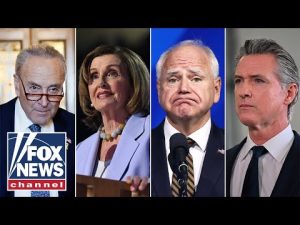In recent months, President Trump’s stance on tariffs has stirred up quite the debate in American political circles. This discussion revolves around the complex motivations behind tariffs, which can be distilled into three main rationales: revenue generation, restrictions on trade, and reciprocity. Each of these carries its own implications for the economy and the American consumer. Understanding these motivations is crucial as the U.S. navigates its trade relationships, particularly with formidable players like China, Japan, and Vietnam.
First, let’s dive into revenue. Historically, tariffs served as a primary source of federal income before the advent of the income tax. In the 1800s, tariffs were about as vital to government funding as a good cup of coffee is to politicians today. However, as American society evolved from a largely agricultural economy to a services-dominated one, the role of tariffs in funding government operations has diminished significantly. While soaking foreign competitors with taxes might sound alluring, it’s essential to recognize that shifting this burden to consumers may lead to increased prices on everyday goods. Thus, the idea of raising significant revenue through tariffs may spark more costs than benefits.
Next on the list is restrictionism—essentially the notion of limiting imports to favor domestic production. While popular among some circles, this notion overlooks the reality of the current job market. Today, only about 10% of jobs in the U.S. are in manufacturing, down from its mid-20th century peak. The manufacturing jobs that do exist are increasingly reliant on technology and automation rather than a human workforce. So, if the President’s goal is to inflate the ranks of manufacturing jobs, the reality is that a large portion of the workforce might feel more like they are running on a hamster wheel rather than being productively employed.
The third rationale is reciprocity. This concept suggests that tariffs could serve as leverage to negotiate better trade deals with other countries. The markets are signaling a clear preference for fair trade over heavy-handed restrictions. If the President can engage in negotiations that foster mutual benefits, the economic climate could brighten, and consumer confidence could soar. However, if the focus is skewed toward restrictive policies, the potential for retaliation from trading partners looms large, possibly creating more economic turmoil than a bull in a china shop.
President Trump has recently left his options open regarding whether tariffs will be permanent or temporary. This ambiguity leaves quite a few folks scratching their heads, wondering what the game plan really is. In one breath, there’s talk of strong tariffs against uncooperative countries; in another, he expresses a desire for fair dealing. The markets seem eager for clarity, and with looming deadlines for new tariffs, everyone is holding their breath to see how this will unfold.
Amidst the chaos, the president has humorously urged Americans not to panic, commanding them to be “strong, courageous, and patient.” Though some might find this sentiment amusingly reminiscent of a motivational poster featuring a kitten, there’s a grain of truth. Both trade and economic stability require a level-headed approach. If the administration leans into strategic negotiations rather than hardline tariffs, it could potentially lead to breakthroughs that benefit both American interests and international relations. A well-executed approach could certainly revitalize the economy, much like finding a long-lost sock at the back of the dryer—unexpected and undeniably gratifying.
In conclusion, understanding the underlying motivations for tariff policies is essential as the U.S. navigates its economic waters. While revenue generation, restrictionism, and reciprocity each carry weight, it’s imperative to strike a balance that avoids hampering American consumers and businesses. If President Trump opts for a more diplomatic route, focusing on fair trade agreements rather than punitive measures, it could lead to a winning situation for the nation—a goal worth pursuing with fervor.







